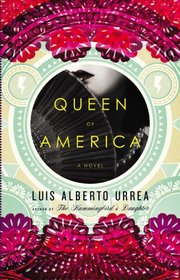Helpful Score: 1
I didn't love this book as much as it's predecessor, The Hummingbird's Daughter, but it was still very good. It's just such a different book; where HBD was the epitome of magical realism, QoA is more historical fiction. Perhaps that difference is due to being set in the U.S. instead of Mexico, or to Teresita growing up, or to the increased historical material.
The first third or so of QoA moves very slowly, reflective of how Teresita's life is just treading water at that point, trying to keep ahead of assassins sent by the Mexican government and trying to coexist with her father, Tomas, who has given up everything for her and whose resentment is growing. There are a few bait and switch moments in this first part that add a little excitement, but overall it was almost painfully slow at times...especially since I read this immediately after HBD.
Then things pick up speed and (for Teresita) spin out of control, forcing Teresita away from her home and family. Overall, this book made me really sad -- Teresita lost so much, including herself. Knowing she was a real person just makes it that much sadder.
The first third or so of QoA moves very slowly, reflective of how Teresita's life is just treading water at that point, trying to keep ahead of assassins sent by the Mexican government and trying to coexist with her father, Tomas, who has given up everything for her and whose resentment is growing. There are a few bait and switch moments in this first part that add a little excitement, but overall it was almost painfully slow at times...especially since I read this immediately after HBD.
Then things pick up speed and (for Teresita) spin out of control, forcing Teresita away from her home and family. Overall, this book made me really sad -- Teresita lost so much, including herself. Knowing she was a real person just makes it that much sadder.




